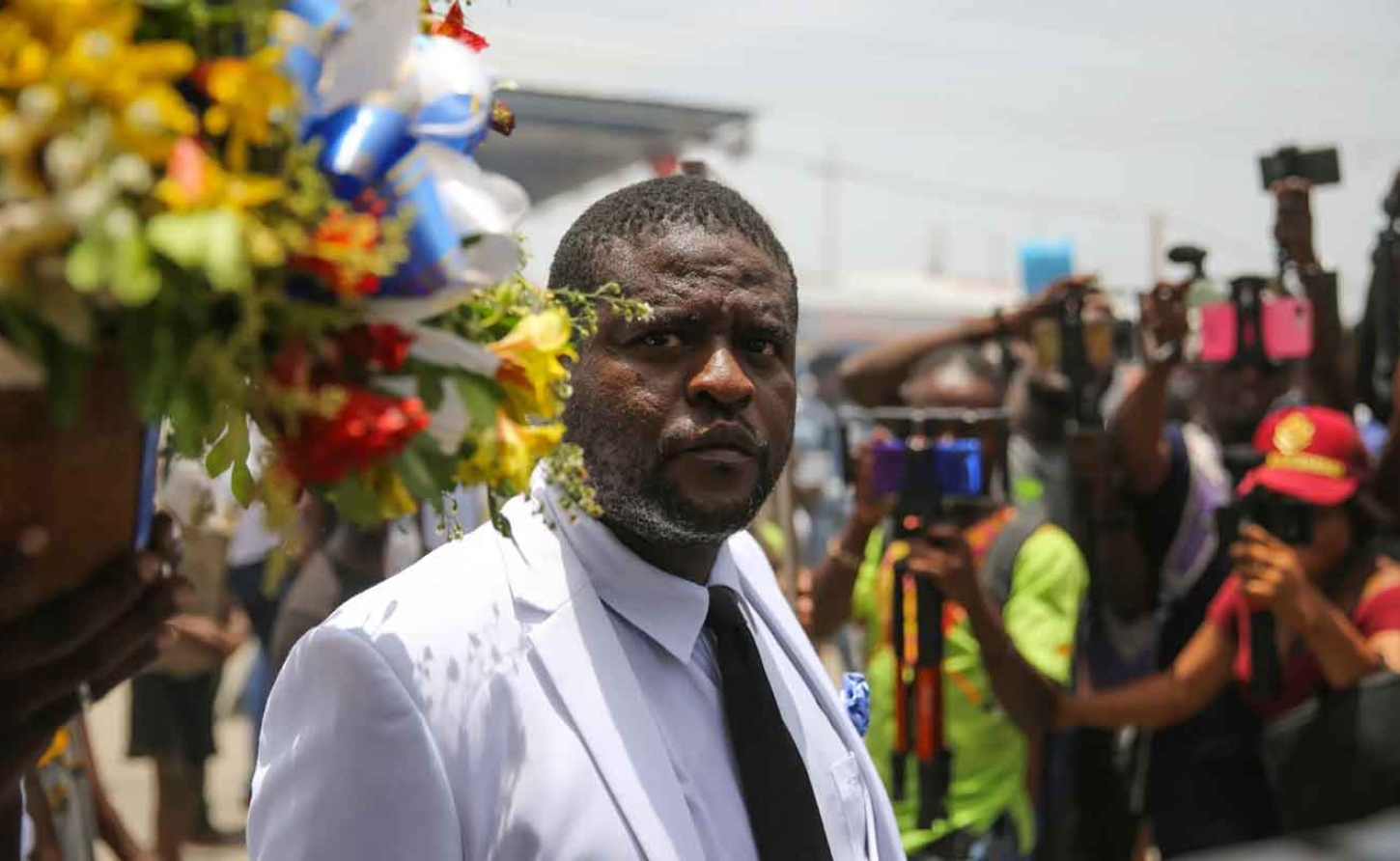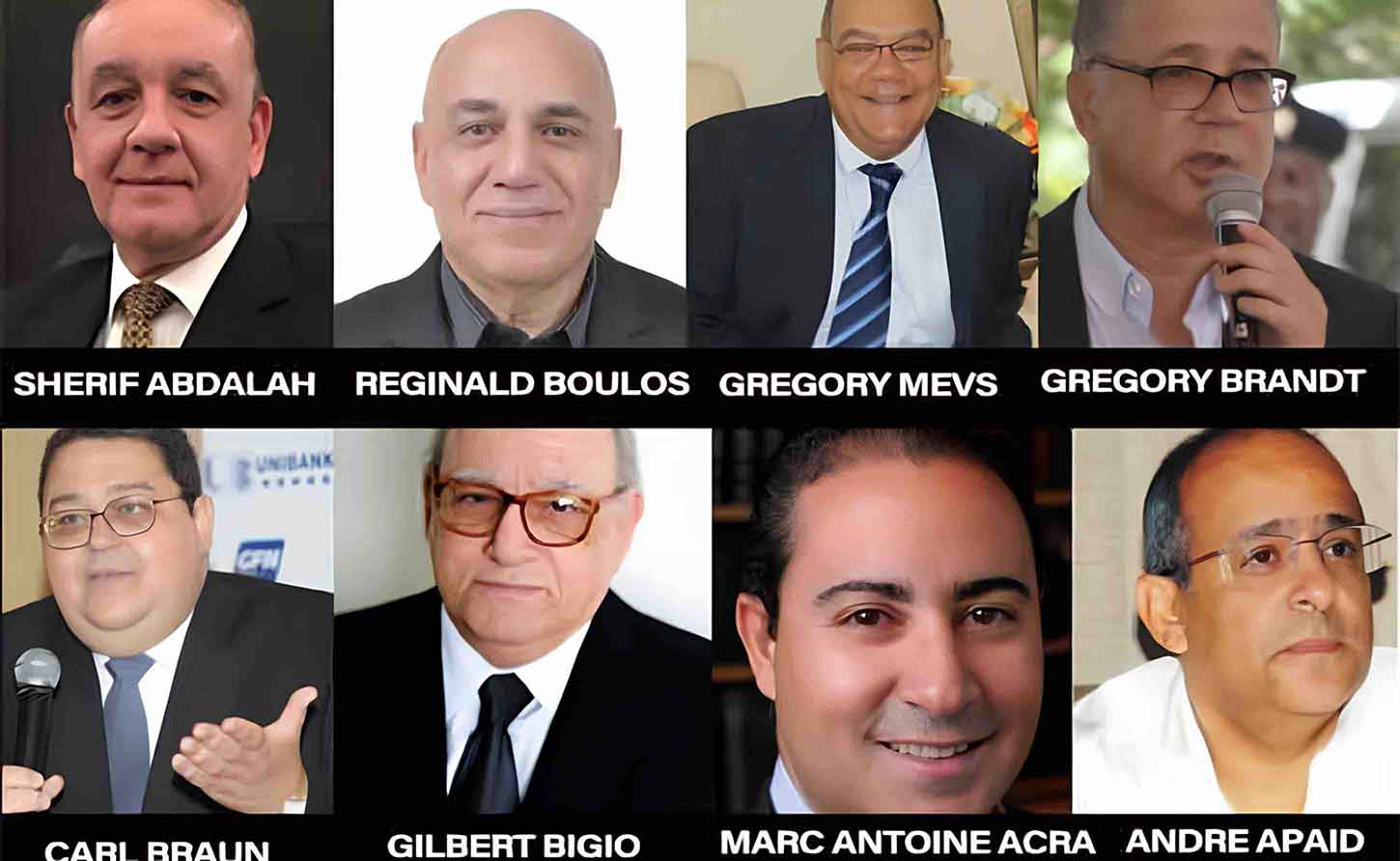HAITI | The American Empire's Long Arm: How Haiti Became Washington's Latest Imperial Playground

KINGSTON, Jamaica, August 13, 2025 - When the United States can indict foreign nationals in their own countries, designate them terrorists, and put bounties on their heads, who exactly is the sovereign here?
The scene would be almost comical if it weren't so sinister: the United States government announces a $5 million bounty for information leading to the arrest of Jimmy "Barbecue" Chérizier, a Haitian gang leader who regularly gives interviews to international media and whose location is hardly a mystery.
As researcher Jake Johnston astutely noted, "This is a guy who is giving international media interviews regularly. I don't think the issue is being able to find him."
So what's really happening here? The federal indictment of Chérizier and Haitian-American Bazile Richardson this week represents something far more troubling than a simple law enforcement action—it's the latest manifestation of American imperial overreach, dressed up in the language of justice and counterterrorism.
The New Colonialism Wears a Legal Suit
Let's be clear about what the United States has claimed the authority to do: designate a gang federation in a sovereign nation as a "foreign terrorist organization," indict foreign nationals living in their own country, and criminalize financial support sent by diaspora communities to their homeland.
This isn't law enforcement—it's the exercise of imperial power with a legal veneer.
The indictment reveals the breathtaking scope of Washington's claimed jurisdiction. Chérizier lives in Haiti and has allegedly committed crimes in Haiti against Haitian citizens.
Yet somehow, American prosecutors believe they have the right to charge him with violating U.S. sanctions that they themselves imposed.
The circular logic is staggering: we'll sanction you, then prosecute you for violating our sanctions, even though you never agreed to be bound by them in the first place.
Even more chilling is the criminalization of diaspora support. The indictment details how Richardson allegedly helped channel money from Haitian-Americans to Chérizier's organization.
But buried in this prosecutorial narrative is a dangerous precedent: the U.S. now claims the right to determine what constitutes legitimate support between diaspora communities and their homelands.
The Terrorist Label: America's New Colonial Tool
The designation of Viv Ansanm as a "foreign terrorist organization" deserves particular scrutiny. This label, once reserved for groups like Al-Qaeda and ISIS, has become America's go-to tool for justifying intervention in foreign conflicts.
By applying terrorism designations to local actors in domestic disputes, Washington transforms complex socio-political crises into neat good-versus-evil narratives that justify American involvement.
Chérizier is undoubtedly a violent actor responsible for horrific crimes. The massacres at La Saline, Grand Ravine, and Bel-Air represent unconscionable brutality. But calling his gang federation a "terrorist organization" fundamentally mischaracterizes the nature of Haiti's crisis.
These aren't ideologically-driven international terrorists—they're the violent product of decades of economic collapse, political dysfunction, and yes, foreign interference.
The terrorism designation serves another purpose: it provides legal justification for virtually unlimited American intervention. Once you're labeled a terrorist organization, you become fair game for anything from financial warfare to military action. It's colonialism with a counterterrorism twist.
The Historical Pattern Washington Won't Acknowledge
This indictment cannot be divorced from Haiti's long history of American intervention. From the 1915-1934 military occupation to the 2004 coup that removed Jean-Bertrand Aristide, Washington has repeatedly treated Haiti as its backyard playground.
Each intervention has been justified as necessary for stability and democracy. Each has left Haiti weaker and more dependent.
The current gang crisis didn't emerge in a vacuum. It's the predictable result of decades of imposed structural adjustment programs, electoral interference, and the systematic destruction of Haiti's indigenous institutions.
Now, having helped create the conditions for this catastrophe, Washington positions itself as the savior—complete with bounties and indictments.
Criminalizing Survival
Perhaps most perverse is the prosecution's focus on diaspora remittances. The indictment treats financial support from Haitian-Americans as criminal conspiracy, but ignores the context: these are people trying to survive in a collapsed state.
When your government cannot provide security, when the police are outgunned and outnumbered, when the international community's response is limited to sanctions and condemnation, what options remain?
The voice memo referenced in the indictment—calling for $1 donations from one million Haitians abroad—reads less like terrorist financing and more like desperate crowdfunding for revolution.
"We want to change everything in Haiti," the message allegedly stated. In a functioning democracy, that would be called politics. In Washington's imperial framework, it's terrorism.
The Convenient Blind Spot: Where Are the Oligarchs?

While Washington focuses laser attention on a former police officer turned gang leader, it maintains studied silence about the billionaire oligarchs who have long employed Chérizier and his ilk as their private security forces.
For decades, Haiti's economic elite—families like the Mevs, Biancos, and Acras—have used gang leaders as enforcers to protect their monopolies, intimidate competitors, and maintain the economic stranglehold that keeps 60% of Haitians living on less than $2 per day.
These are the same oligarchs who control Haiti's ports, telecommunications, banking, and energy sectors—the very infrastructure that gangs now battle to control.
But their crimes extend far beyond economic exploitation. These same oligarchic families have been implicated in some of Haiti's darkest political chapters: the 2004 coup that removed President Jean-Bertrand Aristide, the systematic assassination of political opponents, and the orchestrated destabilization campaigns that have toppled multiple governments.
When democratically-elected leaders threatened their monopolies or proposed reforms that might benefit Haiti's masses, the oligarchs didn't hesitate to finance coups, fund paramilitaries, and eliminate obstacles through violence.
The assassination of President Jovenel Moïse in July 2021 bears their fingerprints.
While Colombian mercenaries pulled the triggers and a Miami-based Haitian-American doctor allegedly masterminded the plot, the money trail and motives lead straight back to Haiti's business elite, who had grown increasingly frustrated with Moïse's attempts to challenge their control.
Yet where are the U.S. indictments for these kingpins of political violence?
Yet not a single member of Haiti's oligarchy appears on any U.S. sanctions list. Not one faces indictment for their role in financing and directing the violence that has consumed their country.
The message is clear: if you're poor and Black and wielding an AK-47 in the slums, you're a terrorist. If you're wealthy and light-skinned and directing that violence from your mansion in Pétionville, you're a business partner.
This selective blindness isn't accidental—it's strategic. Many of these oligarchic families have deep business ties with American corporations and maintain residences in Miami.
They've spent decades cultivating relationships with U.S. officials, contributing to American political campaigns, and positioning themselves as the "stable" alternative to Haiti's chaotic democracy. Chérizier may pull the trigger, but it's often these oligarchs who point the gun.
The Questions Washington Won't Answer
This indictment raises uncomfortable questions about the limits of American power and the selectivity of American justice. If the U.S. can designate local actors in any country as terrorists and prosecute them under American law, what's to stop other powers from doing the same?
Would Washington accept Chinese indictments of American citizens for violating Beijing's sanctions? Russian bounties on U.S. officials for "terrorist" support of Ukrainian resistance?
More damning still: why does American justice apparently stop at the gates of Haiti's elite compounds? The same federal prosecutors who can trace diaspora remittances to gang members seem remarkably unable to follow the money flowing from oligarch bank accounts to the same organizations.
The silence from Haiti's own government on this indictment speaks volumes. Prime Minister Garry Conille's office hasn't commented—perhaps because they understand that in the new colonial relationship, Haitian sovereignty exists only at Washington's pleasure.
Or perhaps because challenging the indictment might require acknowledging the oligarchs who actually run the show.
Imperial Hubris Meets Caribbean Reality
Senior State Department official Chris Landberg declared that Chérizier's "reign of terror and mass violence against Haiti must end." But who appointed Washington as Haiti's judge, jury, and executioner? The same country that armed Haitian dictators for decades now claims moral authority to determine Haiti's fate.
The $5 million bounty on Barbecue isn't about justice—it's about demonstrating American power. It sends a message to anyone, anywhere, who might challenge U.S. interests: we can reach you, sanction you, indict you, and put a price on your head, regardless of your nationality or location.
This is the face of 21st-century imperialism: not colonial administrators in pith helmets, but federal prosecutors in business suits, claiming universal jurisdiction in service of American empire. Haiti, once again, is simply the testing ground for how far that empire can reach.
The real question isn't whether Jimmy Chérizier is a criminal—it's whether America has become one.
